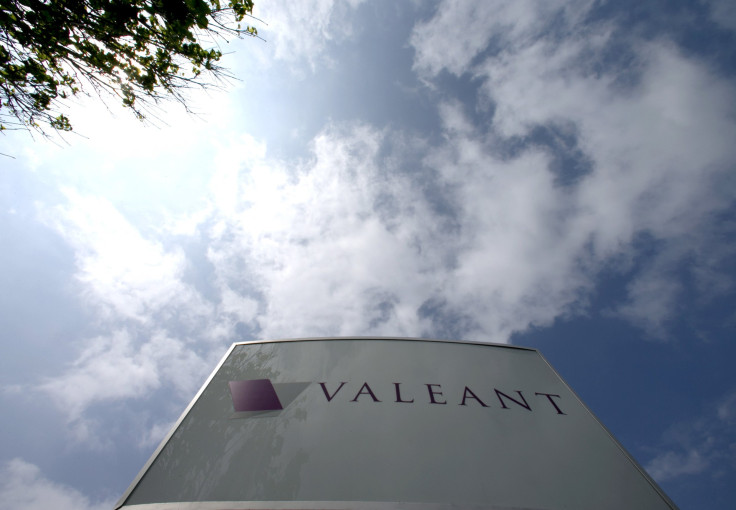Valeant CEO Sees New Drug Pricing Environment Ahead

By Caroline Humer
(Reuters) -- Valeant Pharmaceuticals International Inc, which has been criticized for raising drug prices and is being investigated by the U.S. government, predicted on Monday that lower price increases are ahead for the whole industry.
Valeant Chief Executive J. Michael Pearson told investors the company's 2016 outlook is based on expectations for a new pricing environment where none of its drugs have an actual price increase of more than 10 percent.
Valeant shares fell 7.7 percent, or $13.73, to close at $163.83 on the New York Stock Exchange.
Concerns about drug pricing have loomed over pharmaceutical stocks since last year and the sector's shares have fallen sharply in the past few weeks since Democratic presidential candidate Hillary Clinton criticized the price rises on the campaign trail.
"The pharmaceutical industry is being aggressively sort of attacked for past pricing actions," Pearson said. "I do think, given that environment, the pricing that pharmaceutical companies will take in the future will be more modest."
Valeant, which has become one of the world's largest drug companies through a steady stream of acquisitions, and others have been criticized for acquiring companies and raising the prices of drugs in order to boost profits. Federal prosecutors in New York and Massachusetts opened investigations into the company, asking for information about price increases as well as the workings of its patient assistance programs for poor people to access its drugs.
Pearson said Valeant was unlikely to look for acquisitions based on what he called mispriced assets, or drugs with prices that can be significantly increased because of their value to health care.
"Given the evolution of our product mix, coupled with the recent events, it is likely that we will pursue fewer, if any, transactions that are focused on mispriced products," he said.
Valeant is also considering selling, spinning off or taking private its neurological and other pharmaceutical business, a move one Wall Street analyst described as paving the way for Valeant's business model to be less controversial.
The neurological business accounts for most of Valeant's price actions and realized price increases on average of more than 30 percent, JP Morgan analyst Chris Schott wrote in a research note. He estimated it to make up about 10 percent of the company's revenues.
The move would fit into a strategy that Pearson said has already been underway. Valeant has begun during the past two years to increase sales volumes as a percentage of growth compared with price increases.
"We'll just be pragmatic and why focus on areas of the business that is just going to create a lot of media stir," he added, referring to the recent wave of negative publicity over steep price increases for older medicines.
Pearson said the company would begin to focus more on research and development, on which it historically has spent little. Last year the company spent $100 million on R&D and it sees that growing to $400 million to $500 million in 2016, with a focus on dermatology, contact lenses and surgical sectors.
Pearson indicated Valeant is scaling back on acquisitions, saying that while it continues to look at them, buying back shares may make more sense with the company's stock at its current price.
Valeant reported unexpectedly better quarterly profits earlier on Monday.
(Additional reporting by Bill Bekrot in New York and Ankur Banerjee in Bengaluru; editing by Paul Simao and Grant McCool)
© Copyright Thomson Reuters {{Year}}. All rights reserved.





















